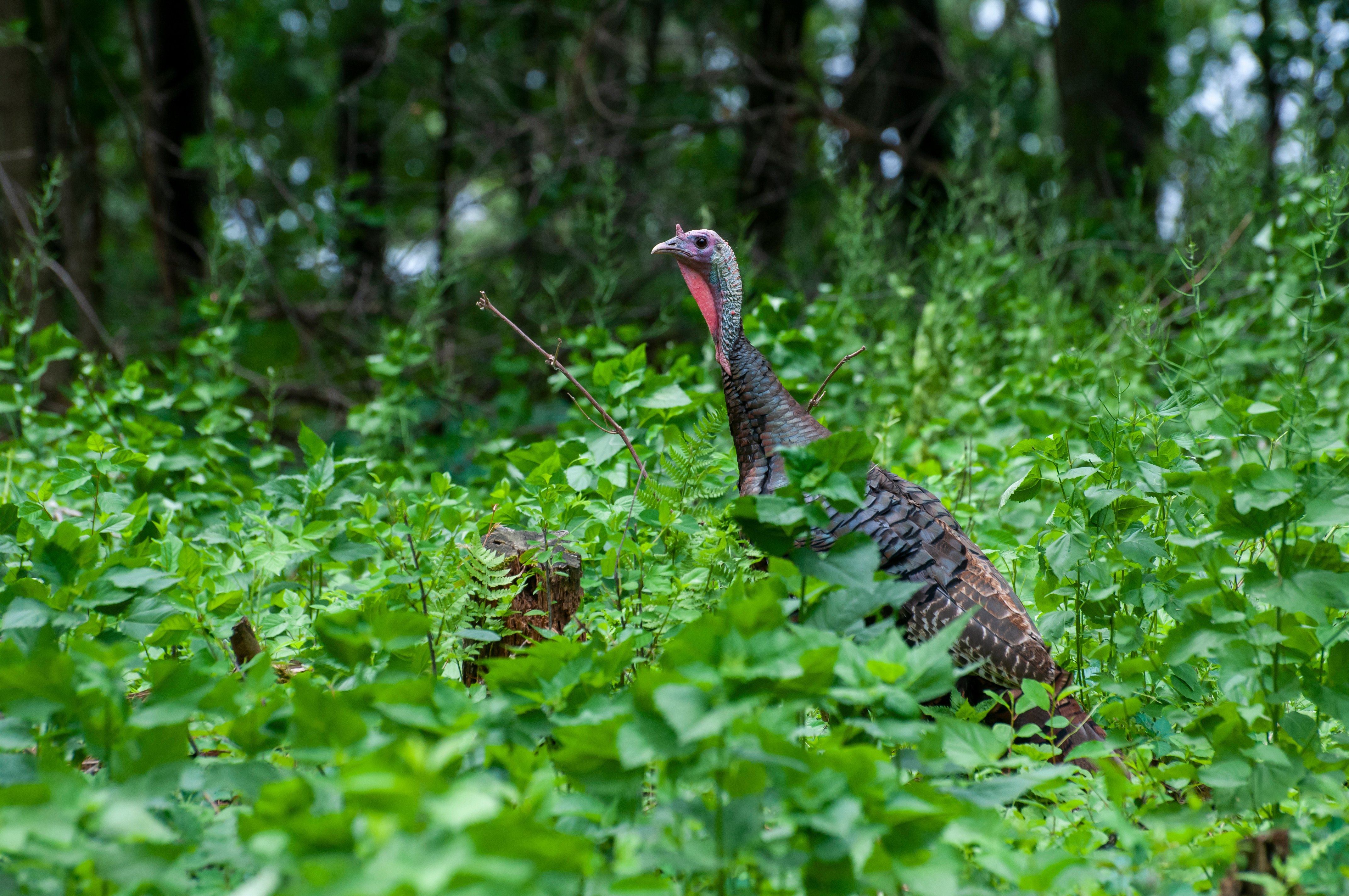AFM NEWS
Expert Advice for Managing Turkey Habitats from Wildlife Service

Like other wildlife, wild turkeys need basic elements to ensure survival: water, food, and shelter. Landowners cultivating an abundant turkey population need to provide these fundamentals to enhance turkey habitat.
Landowners should create and maintain openings for wild turkeys to feed, with 1-3 acres being a good size. Develop a forest management plan with your local AFM forester and wildlife biologist to conduct Timber Stand Improvement (TSI). Thinning trees will make better turkey habitat and make it easier for turkeys to travel. Your forester will save desirable tree species, like native hardwoods, ideal for acorn food production and roosting habitat. Manage invasive species to prevent them from taking over native plants. Your forester and wildlife biologist will also recommend planting native grasses, which provide nesting areas, seeds, and insects for feeding. Prescribed burns can maintain and promote beneficial food.
Wild turkeys are foragers, so they eat leaves, seeds, worms, and insects that live on trees and surrounding vegetation. Plan food sources throughout the year so turkeys have reliable foodstuff each season. Landowners should plant brambles (like blackberries and raspberries), oaks, hickory, and persimmons.
